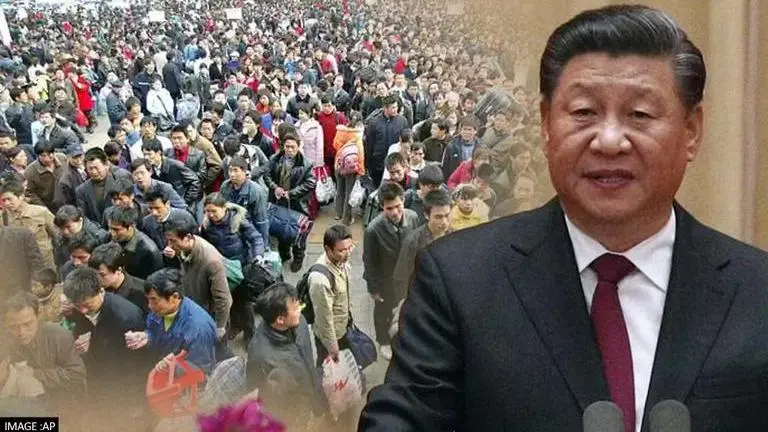Updated 23 January 2022 at 08:23 IST
China's falling birth rate poses future threat to country's economy: Report
China’s birth rate has fallen to a record low with deaths close to surpassing the births despite the Chinese government's efforts to boost the child population.
- World News
- 3 min read

China’s birth rate has fallen to a record low with deaths dangerously close to surpassing the births despite the Chinese government's efforts to boost the child population. Experts warned on Jan. 22, Saturday that the low birth rate is leading to workforce shrinking, a long-term threat to the country's economy, according to Japan Times. China's aim to become the world's most "rich and powerful country" by 2049, on the 100th anniversary of the founding of the People's Republic of China, is imperilled, the report stated.
China's economy is "unbalanced and momentum is slowing," the World Bank also warned, adding that it is causing the Chinese workforce to shrink, declining productivity, flaring the US-China trade war, and is decoupling Beijing from the international economy. National Bureau of Statistics of China also found that the country’s economy grew at its lowest rate since 1990 due to the pandemic in 2020.
Meanwhile, not even one in four women of child-bearing age in Shanghai is willing to have a child, the report noted, adding that the birth rate has dropped to 1.05 percent. While Chinese premier Xi Jinping’s government has been urging the Chinese population to have two children, Beijing’s one-child policy is starting to show a detrimental impact lately.
It was also earlier reported that approximately millions of elderly Chinese have been left without children, feeling lonely and depressed during their old age as a result of China’s infamous “one-child” policy. The majority of the Chinese couple have passed the childbearing age, and are now in their late 50s and 60s, many of whom are also lonely and financially unstable due to China’s controversial population control policy.
Advertisement
The enforced birth limits were introduced in the1980s and had since deterred the youngsters to “start a family'. To make the matters worse, the Chinese millennials were more unwilling to start a family, as they complained about the high costs of raising children, problems, and disruption to their jobs. On the contrary, citizens overall have better lives and better health care, which allows them to live longer.
Birth rate 'drastically plunged'
Vice-president of the Shanghai Women’s Federation, a government body, Weng Wenlei, had earlier reportedly warned that lately, despite the removal of the one-child policy, the birth rates in Shanghai, one of the largest cities in China, had drastically plunged. The number of births in the city deteriorated “swiftly” after a brief recovery in 2016.
Advertisement
“This suggests [the two-child policy] has failed to serve its intended purpose,” Weng had told FT. “Consistently low birth rate will have a negative impact on Shanghai’s social and economic development,” she added. The latest demographic shift has also created several challenges for the world’s greatest economy such as shortage of labour, lack of manpower to power assembly lines, and care for the old. “A large and young labour force is the main engine of economic growth,” Yi Fuxian, a scientist at the University of Wisconsin, Madison had similarly told FT. “That’s what China is starting to lose.”
Recently, China has begun a crackdown on private education and has been trying to slow the rise in housing prices in order to encourage youngsters to have kids and boost the birth rates. As per The Japan Times, China is also planning similar actions in terms of housing subsidies, more generous maternity leave policies, increases in child care centres, and changes in income tax policies to encourage women to conceive. But experts warned that China's declining birth rate despite the government's numerous efforts looks almost impossible to reverse,
Published By : Zaini Majeed
Published On: 23 January 2022 at 08:23 IST
